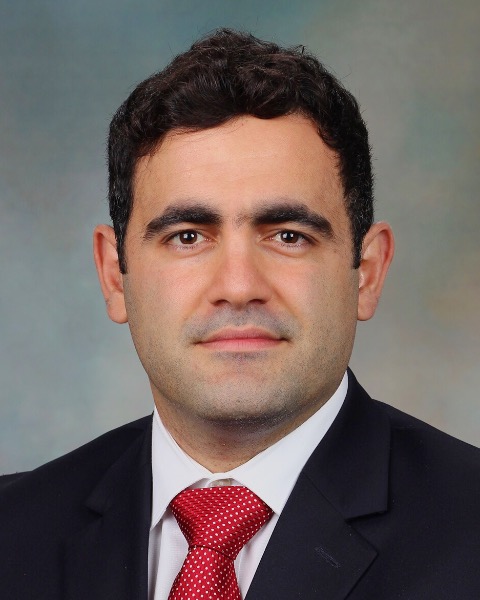Back
Colorectal
Session: Upper GI and Colorectal Parallel Session
25: Q&A
Thursday, March 10, 2022
5:29 PM – 5:30 PM CST
Location: Trinity Ballroom

Rami James N. Aoun, MD, MPH
Resident
Department of Surgery, The Ohio State Wexner Medical Center
Columbus, Ohio, United StatesDisclosure: I do not have any relevant financial / non-financial relationships with any proprietary interests.
Abstract Presenter(s)
Participants should be aware of the following financial/non-financial relationships:
Rami James N. Aoun, MD, MPH: I do not have any relevant financial / non-financial relationships with any proprietary interests.
Introduction: The AJCC tumor regression grading (TRG) system evaluates the oncological response of locally advanced rectal adenocarcinoma to neoadjuvant chemoradiation therapy (nCRT). This varies from a complete response, or a score of 0, to minimal or no response, or a score of 3. Increased response to nCRT is correlated with improved health outcomes. There is a need to decipher the factors that contribute to this variability in rectal cancer, and better define predictive biomarkers for radiotherapy response.
Methods: Pretreatment rectal cancer biopsies were obtained from 33 patients who subsequently underwent long course nCRT and then surgery. Tumor transcriptomic profiles were measured by microarray analysis. Differentially expressed genes (DEG) using set parameters were then analyzed and compared based on pathologically graded AJCC scores using a Wilcoxon rank-sum test with significance level set at 0.05.
Results: 565 genes were differentially expressed among the 4 AJCC scores: 0-3. To identify genes associated with radiotherapy resistance, we isolated genes having stepwise increased expression with increasing AJCC scores (3 >2 >1 >0). This yielded 57 DEG on which we then applied an additional modifier (the ratio of expression in AJCC3 over AJCC0 set at >2 fold increase). This yielded a gene signature of 19 DEG meeting all criteria. The top DEG included INHBB, MAOB, APCDD1, HSD17B14 and MC1R. Receiver Operating Characteristic (ROC) curve analysis demonstrated excellent predictive values for each of these genes comparing AJCC 0 to AJCC 3, with AUC ranging between 0.83 and 1.00 (CI 0.6-1.0, p < 0.05).
Conclusions: We identified a gene expression biomarker signature associated with rectal cancer radioresistance. This is particularly useful to distinguish poor responders, which could trigger consideration of non-traditional treatment approaches. Further investigation is needed to understand the interaction of these genes with radiation therapy and eventually validate this signature on a larger cohort of patients.
Methods: Pretreatment rectal cancer biopsies were obtained from 33 patients who subsequently underwent long course nCRT and then surgery. Tumor transcriptomic profiles were measured by microarray analysis. Differentially expressed genes (DEG) using set parameters were then analyzed and compared based on pathologically graded AJCC scores using a Wilcoxon rank-sum test with significance level set at 0.05.
Results: 565 genes were differentially expressed among the 4 AJCC scores: 0-3. To identify genes associated with radiotherapy resistance, we isolated genes having stepwise increased expression with increasing AJCC scores (3 >2 >1 >0). This yielded 57 DEG on which we then applied an additional modifier (the ratio of expression in AJCC3 over AJCC0 set at >2 fold increase). This yielded a gene signature of 19 DEG meeting all criteria. The top DEG included INHBB, MAOB, APCDD1, HSD17B14 and MC1R. Receiver Operating Characteristic (ROC) curve analysis demonstrated excellent predictive values for each of these genes comparing AJCC 0 to AJCC 3, with AUC ranging between 0.83 and 1.00 (CI 0.6-1.0, p < 0.05).
Conclusions: We identified a gene expression biomarker signature associated with rectal cancer radioresistance. This is particularly useful to distinguish poor responders, which could trigger consideration of non-traditional treatment approaches. Further investigation is needed to understand the interaction of these genes with radiation therapy and eventually validate this signature on a larger cohort of patients.
Learning Objectives:
- Identify a gene expression signature predicting rectal cancer response to radiation
- Identify differentially expressed genes in a microarray transcriptomic analysis
- Describe the different grades of AJCC Tumor Regression Grading system
